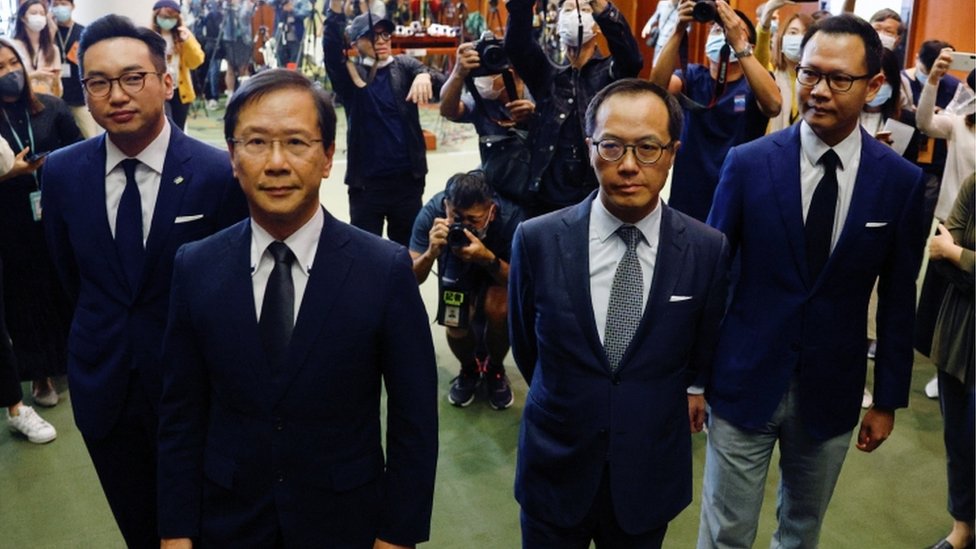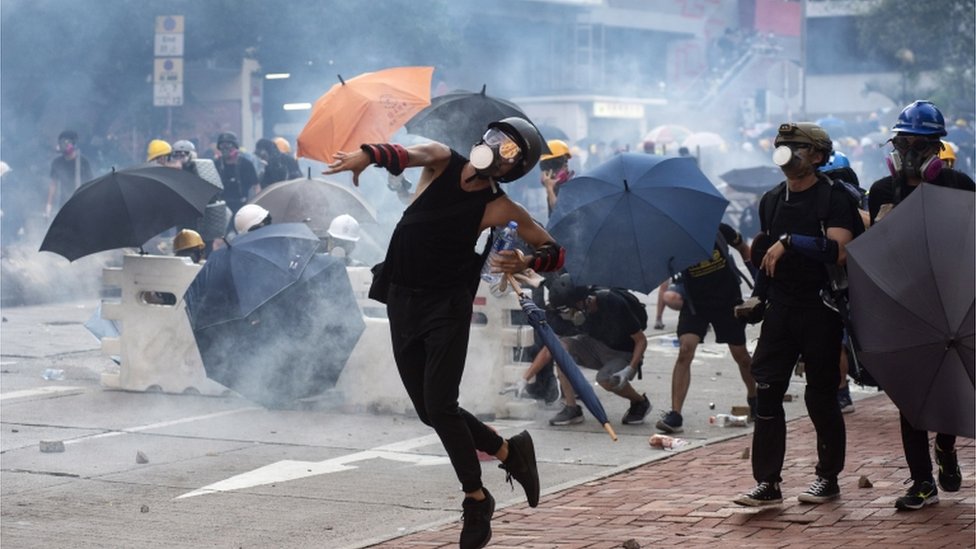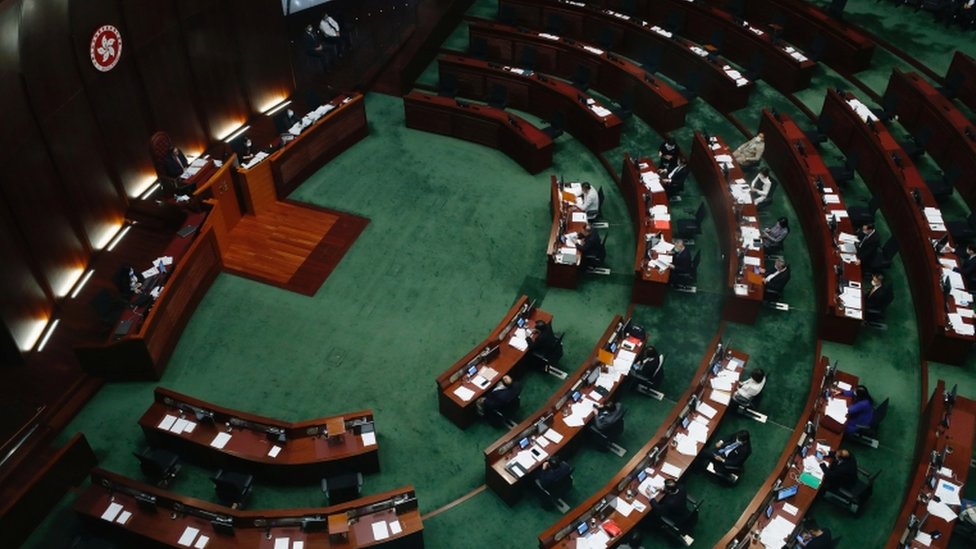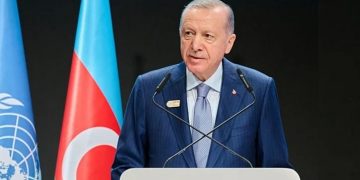TT News Asia China :
China’s government has condemned the mass resignation of most of Hong Kong’s opposition as a “farce” and an “open challenge” to its authority.
On Wednesday, 15 opposition members announced their resignation in solidarity with four fellow lawmakers who had been dismissed.
Beijing said the four were deemed a threat to national security.
But many see it as further restricting Hong Kong’s rights, including freedom of speech, which Beijing denies.
China’s Hong Kong and Macau Affairs Office on Thursday condemned the mass resignation as “an open challenge” against the Chinese government’s authority and the Basic Law, Hong Kong’s mini constitution.
It also said the move showed their “stance of stubborn resistance” against the central government.
“If these lawmakers hope to make use of their resignation to provoke radical opposition and beg for foreign interference, they have miscalculated,” a spokesperson said.
What led to this?
On Wednesday, a resolution passed by Beijing said lawmakers should be disqualified if they support Hong Kong independence, refuse to acknowledge China’s sovereignty, ask foreign forces to interfere in the city’s affairs, or in other ways threaten national security.
Immediately afterwards, Hong Kong dismissed four opposition members of the city’s Legislative Council (LegCo) under the rules of the new resolution.
Later on Wednesday, another 15 pro-democracy lawmakers announced they would resign en masse in solidarity.
On Thursday, they were absent from their seats in the LegCo.
The city’s 70-seat legislature has 21 opposition members, usually referred to as non-establishment. Only two of those will now remain in the parliament.
Why were the four dismissed?
City officials say the four lawmakers removed on Wednesday had already been disqualified from running in the next election, originally scheduled for September 2020 but postponed to next year.
Hong Kong Chief Executive Carrie Lam explained that legislators who did “not fulfil the requirement and the prerequisite for serving on the Legislative Council” could not be allowed to continue serving on it.

Beijing and Hong Kong officials have not given details on how exactly the four men had contravened the rules.
Two of them, Dennis Kwok and Alvin Yeung Ngok-kiu, were among the signatories on a joint letter to US senators calling for sanctions on Hong Kong.
Kenneth Leung is accused of indirectly supporting sanctions after attending a press conference on the matter following a trip to the US.
Election officials had previously accused the fourth man, Kwok Ka-ki, of having a “purported intention” to ask foreign powers to sanction Hong Kong, according to local reports.
Wednesday’s resolution to allow the ousting of lawmakers also came amid frustration by the pro-Beijing camp in Hong Kong over what they say is opposition filibustering to delay and block legislation.
Who are the four?
Alvin Yeung: Leader of the pro-democracy Civic party and a practising barrister, he reportedly gave up his Canadian citizenship to run for office in Hong Kong. Mr Yeung first won a seat in the LegCo in 2016
Dennis Kwok: Also a barrister, Mr Kwok is a founding member of the Civic Party. The former deputy chairman of the House Committee was earlier accused of paralysing Legco by using filibustering tactics, in a move the Chinese Central Government in Hong Kong called “malicious”
Kenneth Leung: The senior tax consultant is a member of the pro-democracy parliamentary group, the Professionals Guild. He has sat in the Legislative Council since 2012
Kwok Ka-ki: The Civic Party member, who is a urologist by trade, has served as a legislative councillor representing the medical functional constituency since 2004
What does this mean for Hong Kong?
The developments underscore the rapid expansion of Beijing’s influence in the territory, pushing for loyalty from all levels of power.
Observer say that without the pro-democracy lawmakers, there will be no effective opposition and LegCo reduced to a rubberstamp parliament.
Earlier this month, authorities already arrested several other pro-democracy legislators over scuffles during a LegCo meeting in May.
The city’s leader is already chosen by pro-Beijing committees, and only half of the LegCo seats directly elected.
A Special Administrative Region since its return from Britain in 1997, Hong Kong was to have its own legal system, multiple political parties, and rights including freedom of assembly and free speech for 50 years.

But the new security law for the city passed in response to months of pro-democracy protests criminalised “secession, subversion and collusion with foreign forces”.
Beijing said the law will return stability to the territory, but critics said it effectively curtails freedom of speech and protest.
What has been the reaction?
The US has warned it will impose further sanctions against China targeting those responsible for extinguishing Hong Kong’s freedom.
“‘One country, two systems’ is now merely a fig leaf covering for the Chinese Communist Party’s expanding one party dictatorship in Hong Kong,” US national security adviser Robert O’Brien said.
UK Foreign Secretary Dominic Raab said the Chinese resolution would “harass, stifle and disqualify democratic opposition tarnishes China’s international reputation and undermines Hong Kong’s long-term stability.”

Germany, current holder of the EU’s rotating presidency, and Australia have also condemned the firings.
But Chinese foreign ministry spokesman Wang Wenbin on Wednesday said the disqualification of the four lawmakers was “rational, reasonable and in line with the constitution and laws”.
“This was a necessary requirement for adhering to and improving on ‘one country, two systems’, implementing Hong Kong’s Basic Law, as well as Hong Kong’s National Security Law,” he said at a news conference in Beijing.
Source : bbc.com













